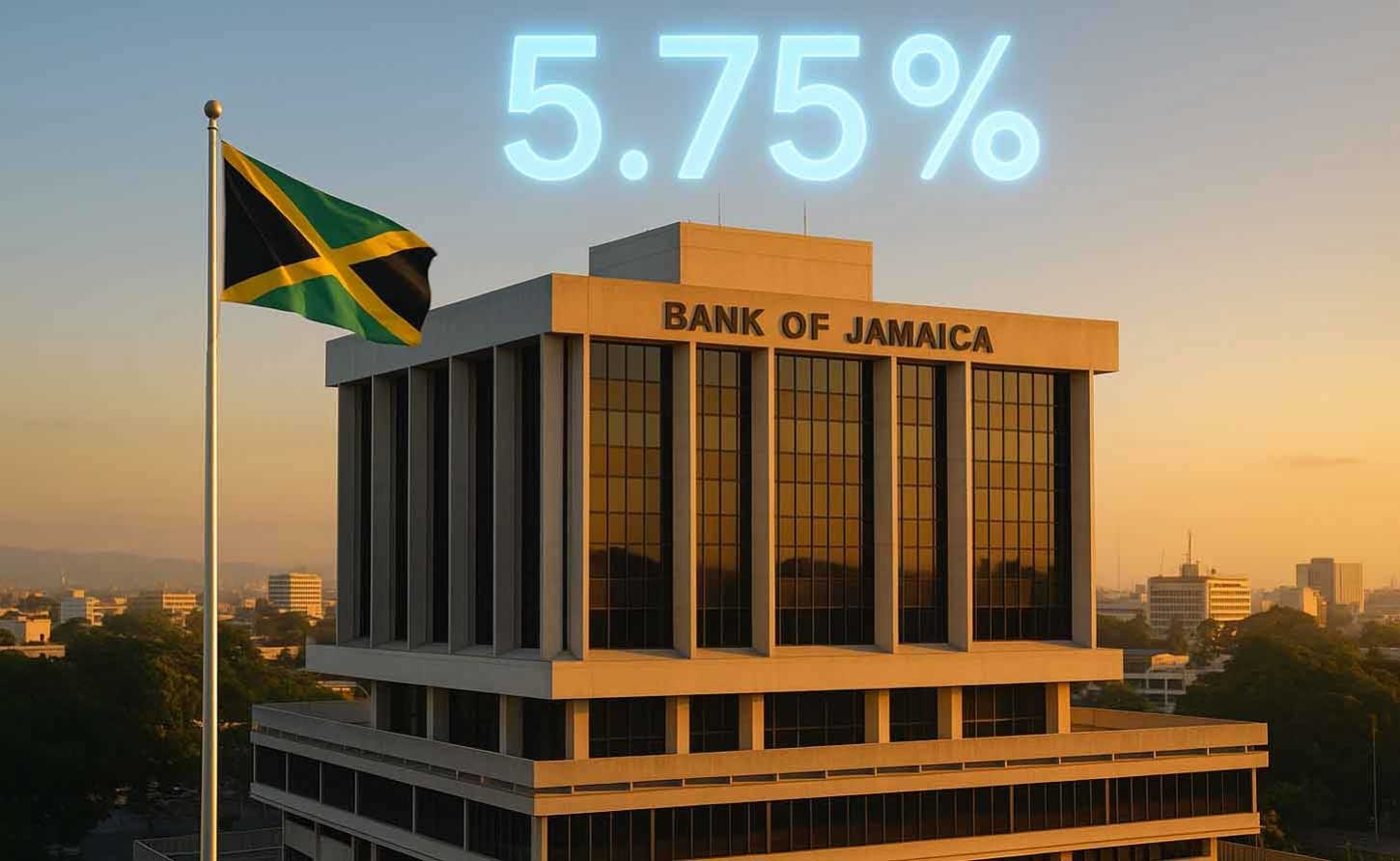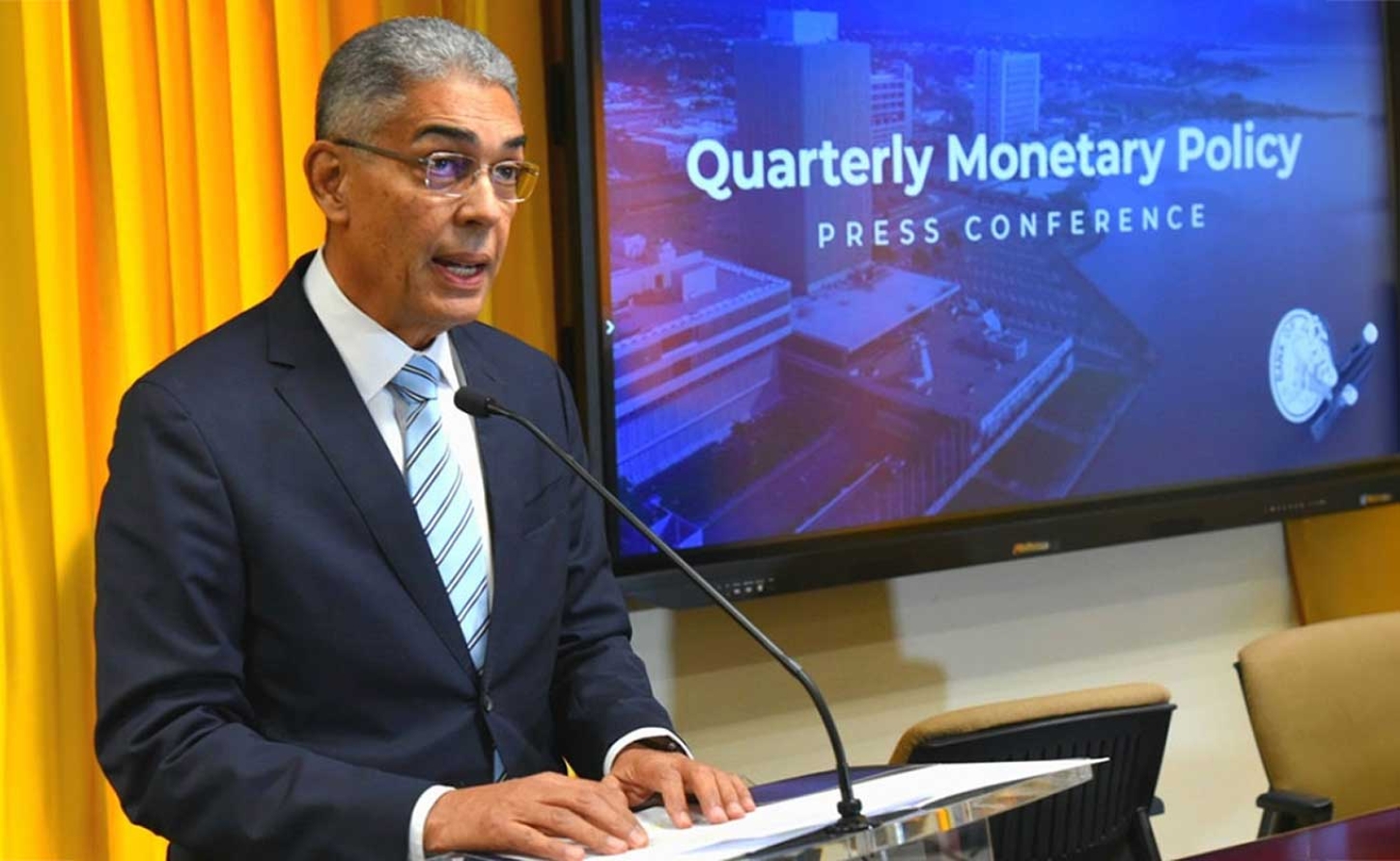JAMAICA | Bank of Jamaica Holds Policy Rate at 5.75% - Deploys FX Measures to Shield Economy

Central bank commits US$210 million to stabilize foreign exchange market as inflation expected to spike
The Bank of Jamaica (BOJ) has opted to hold its policy interest rate steady at 5.75 per cent while rolling out special measures to stabilize the foreign exchange market, as the country grapples with the economic fallout from Hurricane Melissa.
The decisions, announced following the Monetary Policy Committee's (MPC) meetings on November 20-21, 2025, reflect the central bank's effort to balance inflation control with the urgent need to support reconstruction efforts. The MPC expressed deep concern over "the considerable hardship and dislocation being suffered by many Jamaicans" in the hurricane's wake.
"Preserving a stable macroeconomic environment is essential to the recovery effort at the individual, household and national levels," the BOJ stated in its policy summary.
Inflation Set to Surge Beyond Target
Jamaica entered the post-hurricane period from a position of relative price stability. Annual headline inflation stood at 2.9 per cent in October 2025—below the BOJ's target range of 4.0 to 6.0 per cent. Core inflation, which strips out volatile food and fuel prices, registered 3.7 per cent.
That stability is now expected to unravel. The BOJ projects headline inflation will "rise sharply" and breach the upper bound of its target range over the near term. The drivers are straightforward: Hurricane Melissa devastated major food-producing parishes, and the shock waves will ripple through prices for household maintenance, transportation, energy, and personal care items.
More concerning for policymakers, core inflation is also projected to climb, breaching the target range by mid-2026. This signals that price pressures will extend beyond the immediate food supply disruptions into the broader economy.
The MPC noted that risks to the inflation outlook are "skewed to the upside." Reconstruction demand could exceed expectations, inflation expectations could rise faster than anticipated, and long-term damage to productive capacity could constrain supply recovery. On the other hand, inflation could come in lower if income losses suppress consumer demand more severely than projected.
Foreign Exchange: The Critical Stabilizer

Since Hurricane Melissa's passage, the central bank has already sold US$210 million into the foreign exchange market to support liquidity. But the MPC signaled this is only the beginning of a more comprehensive intervention strategy.
Going forward, the BOJ will provide foreign currency liquidity directly to selected entities in the energy sector—a critical move given Jamaica's dependence on imported fuel. The bank will also reintroduce scheduled advance notices of intervention sales, a mechanism that provides market participants with greater predictability about currency availability.
"Bank of Jamaica is prepared to deploy other measures to maintain orderly conditions in the exchange rate market, as needed," the MPC stated.
The central bank emphasized that Jamaica's strong international reserves position underpins its capacity to execute these interventions without destabilizing the country's external accounts.
Fiscal Rules Suspended, Contraction Expected
The monetary policy response comes alongside significant fiscal adjustments. The government has signaled a temporary suspension of Jamaica's fiscal rules—the strict debt and spending targets that have anchored economic policy in recent years—to accommodate relief and recovery expenditure.
This fiscal loosening will inject additional spending into the economy, which the BOJ must factor into its inflation calculus. The MPC acknowledged that the domestic fiscal stance "poses some risk to inflation over the near-term."
The broader economic picture is sobering. The BOJ projects the economy will "contract significantly" over the near term due to extensive infrastructure damage and disruption to productive activity and livelihoods. The outlook for fiscal years 2025/26 and 2026/27 has deteriorated markedly from previous forecasts
Path to Recovery: Early 2027
Despite the challenging outlook, the BOJ projects that its policy measures—holding the rate steady while actively managing the foreign exchange market—will enable inflation to return to the target range by early 2027.
The central bank committed to "heightened surveillance" of second-round effects, particularly how elevated food prices feed into core inflation. The MPC made clear it stands ready to adjust its policy stance if emerging risks threaten the projected return to price stability.
The domestic banking system, the BOJ noted, remains sound with adequate capital and liquidity—a foundation that should support the financial sector's role in channeling credit for reconstruction.
Jamaica's next monetary policy announcement is scheduled for December 18, 2025, when the MPC will reassess conditions as more data emerges on the hurricane's economic toll.
-30-
WiredJa News Service
